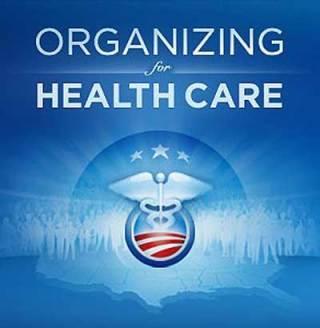
Image from http://www.bucksright.com
“Already, the Affordable Care Act is helping to slow the growth of health care costs,” President Barack Obama boasted in his State of the Union address.
“…That line will be a real howler next year, especially for the young people who so enthusiastically supported him,” opines veteran health care analyst Grace Marie Turner, president of the Galen Institute think tank.
Yes, the majority of young people who proudly donned their “Forward” t-shirts and bumper stickers for our crusading President may be getting a lot more than they they bargained for going “forward.” According to new research, they are the ones who will be feeling the largest pinch when the President’s healthcare reform bill comes into full effect in 2014. It turns out there is nothing affordable or protective about the Patient Protection and Affordable Care Act.
Premiums have already increased by an average of $3,065 in the last three years, flying in the face of Obama’s promise to “bring down premiums by $2,500 for the typical family” by the end of his first four years in office. The kicker is that premiums are poised to go up even more, as Obamacare takes effect in full force during the upcoming years of the president’s second term.
Heed the warnings:
Already, in California, Blue Shield is seeking state approval to raise its premiums by up to 20 percent, saying that federal mandates under Obamacare factored into their requests substantively.
A study conducted by Kurt Giesa and Chris Carlson yielded the results that premiums for people aged 21 to 29 with single coverage who are not eligible for premium assistance would increase by 42 percent over premiums absent the Affordable Care Act. Thus, those young adults in this age group who have an income of $25,000 or more can expect to see much higher premiums than would be the case without Obamacare. The full report can be found here: http://www.contingenciesonline.com/contingenciesonline/20130102#pg37
Another study carried out by the consulting firm of Oliver Wyman concludes that premiums for individuals will rise by $1,576 and $3,341 for families per the conditions of the bill. The data also revealed that young people will be hit the hardest, predicting that premiums for new health insurance policies purchased by the youngest third of the population would rise by 35 percent under the bill.
Even a crafter of the healthcare law, MIT economist Jonathan Gruber, predicted that premiums would go up by about 30 percent on average. In 4 of 5 states he has examined, “one-third of them are worse off,” he said.
So, what is to be done?
As common sense dictates, most young individuals, families, and even businesses can’t afford to foot the hefty bills that go hand in hand with the law, so they just won’t do it, considering the fine for failing to have health insurance is only $750 (but fines will go up exponentially each year). However, when people do become unhealthy and need care, insurance companies are obligated to provide them coverage and can’t even charge them a higher premium than they would have charged when these people were healthy. And insurance companies can’t turn them away.
It sounds to good to be true. Because it is. After all, when has socialized medicine ever worked? (Answer: never.)
Clearly, it is an unsustainable system that will, ironically, create more uninsured at best and lead to unmitigated calamity at worst. Any sensible person will pay the fine as opposed to the exorbitant premiums coming his or her way, so the influx of money needed to sustain the system (and pay for the services) won’t be there. Everyone can simply sponge off the system, which will lead to a complete breakdown of healthcare as we know it, leading to rationed services, death panels, and other consequences of disaster. Undoubtedly, this is the bleak future that Obamacare promises for the young and old alike…unless it is repealed or drastically reformed.
So much for the hope, but I guess we got the change.

